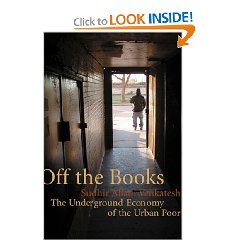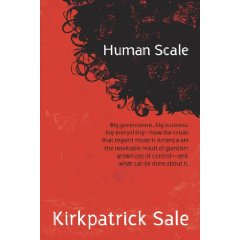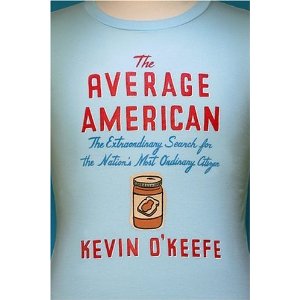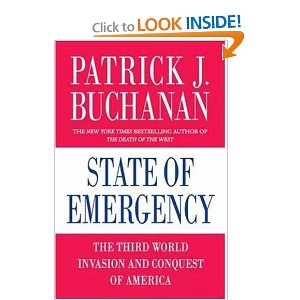
Superb, Of Lasting Value, Next Edition Should Include Some Appendices,
Robert Daniels review is useful. What stayed with me on this book is that we have let our urban poor down, over and over, and while they have created an underground community and a web of relationships that span the licit and illicit, they will never rise above that bare bones existence in the absence of substantial structured help.
The author draws on others to estimate that this community across the land could be responsible for at least 75 billion a year in unpaid taxes.
A few vital phrases:
“no one took (even) a few dollars for granted.”
this is a community with an intricate set of protocols for survival on the edge of the law and the edge of the economy
clergy plays a critical role as both brokers and clients for services; mothers as single heads of households are part of block committees that can negotiate complex and very specific arrangements with gangs, police, and others.
$50 in food stamps was worth (2001-2003) $75 in car repairs or $30 in beer.
The webs of relationships overcome any differences between licit and illicit. ANY form of income is respected and prized.
Informal credit a necessary social capital that replaced structured credit.
The night spaces are used by traders, regulators, and predators.
The chapter on the priests and block mothers was especially great. The author identified three blocks of preachers doing three different roles: brokering disputes in the illicit and licit local world; serving as part time work or exchange brokers for the working poor; and serving as outreach to the police and other communities, e.g. the adjacent white middle class community whose preachers could pass the word on available service jobs with specific families.
The bottom line is clear: even the most desperate, if they are resilient, can survive and find some form of happiness, but we have let them down. As I write this, Wall Street is giving out tens of billions in bonuses to its employees, the US Government is mounting the worst deficit and combined national debt in history, and the Navy and the Air Force are continuing to demand new carriers and long-range bombers while our troops on the ground lack showers, hot food, comfortable quarters, and safe vehicles–as well as an attentive responsible government (at the top–I never mean to be critical of the good people trapped in this terribly screwed up mess we call the federal government).
This is a serious useful accomplishment. Other books I recommend include ILLICIT by Moises Naim, “The Working Poor” by David Shipler, “Nickled and Dimed” by Barbara Ehrenreich, and “The Global Class War” by Jeff Faux, see my reviews of each for a quick insight into those authors' very valuable complementary views.
My only dismay is that this book is missing the icing. I would have loved to see some figures, maps, charts that visualized the substance. The comparison of the value of food stamps to car repair to beer is priceless. Most of these people barely made $750 a month. I sense that the author was exhausted by this effort and slowed to a walk as the book came to completion–should it be re-issued, and I expect it will be as I consider it to be scholarship of lasting value, I would like to see some really excellent charts, extrapolations, and visualizations.
A really fine piece of work, well worth reading along with the other books mentioned above.
See also, with reviews:
The Working Poor: Invisible in America
Nickel and Dimed: On (Not) Getting By in America
Richistan: A Journey Through the American Wealth Boom and the Lives of the New Rich
All the Money in the World: How the Forbes 400 Make–and Spend–Their Fortunes

Click Here to Vote on Review at Amazon,
on Cover Above to Buy or Read Other Reviews,
I Respond to Comments Here or There









